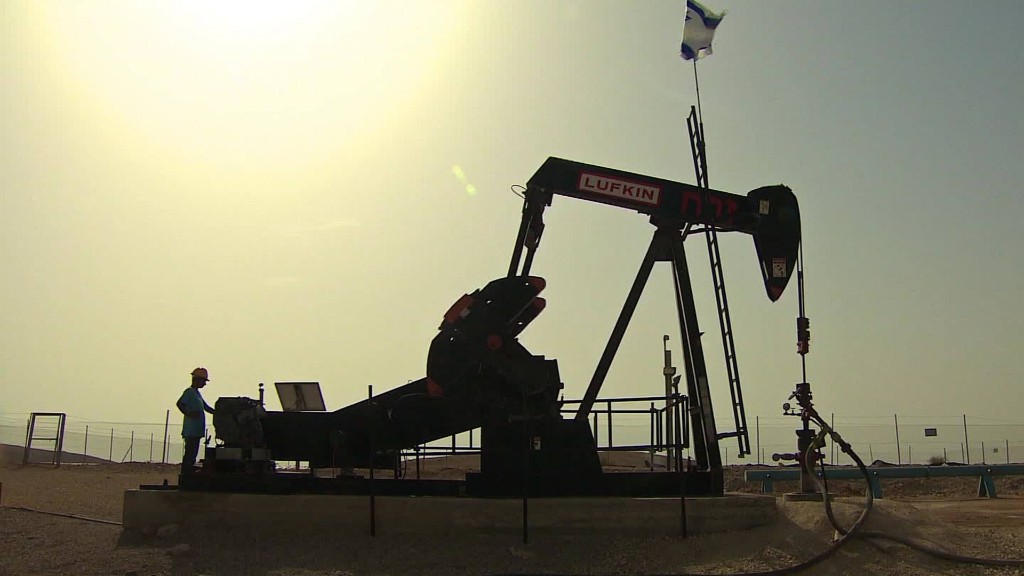
Just 15 years ago, Israel relied entirely on imported coal, natural gas and oil for its energy needs.
All that could change in the next few years following the discovery of giant gas fields. In fact, Israel may have so much natural gas it has to export some to its neighbors.
The heart of Israel's energy revolution sits 15 miles off the country's Mediterranean coastline. Since it was discovered in 2009, production at the Tamar natural gas field has risen steadily and now averages 1.2 billion cubic feet a day, enough for 40% of Israel's power generation.
Tamar, which contains 10 trillion cubic feet of gas, was just the beginning. In 2011, Noble Energy (NBL) and Israel's Delek (DGRLY) discovered the Leviathan field. Until recently, it was the largest gas field ever discovered in the Mediterranean. It contains an estimated 22 trillion cubic feet of gas, enough to make Israel a major player in the regional market.
Related: World oil prices back at $50
More discoveries followed - the Tanin field in 2012 and Karish a year later. The gas fields added 3 trillion cubic feet to Israel's gas reserves.
"Tamar already [makes] Israel almost independent from an energy perspective," said Yossi Abu, CEO of Delek. "Leviathan can bring Israel to be an exporter of natural gas."
If development of Leviathan begins this year, the field could be producing gas by 2019, Abu said. Exports could follow soon after, he says.
But Israel needs foreign investment to develop the gas fields. Leviathan requires an estimated $6 billion. The field would have eight wells, pumping 2 billion cubic feet per day, but it remains untapped because of regulatory delays.
The government this week approved plans for a legal framework that would encourage foreign investors to participate in the development of gas fields.
Delek's Abu expects development to begin in the coming months once the legal framework clears its final hurdle.
Related: The new normal in oil prices? Wild swings
Once the fields are producing, Israel will have no shortage of potential customers.
Egypt used to supply Israel with natural gas until the Sinai gas pipeline was repeatedly bombed in the summer of 2012. Now the gas could flow the other way, as Egypt's demand is growing.
Turkey has also found itself in need of natural gas after relations with Russia soured, bottoming out when Turkey shot down a Russian fighter jet last November.
Related: Russia suspends Turkish gas pipeline project
The relationship between Israel and Turkey had been strained for at least five years, but just a month after the Russian fighter was shot down, Israel and Turkey announced progress on a deal that includes normalizing relations and building a natural gas pipeline for sale of Israeli gas to Turkey.
Other export options include Jordan, Cyprus, and Greece.
